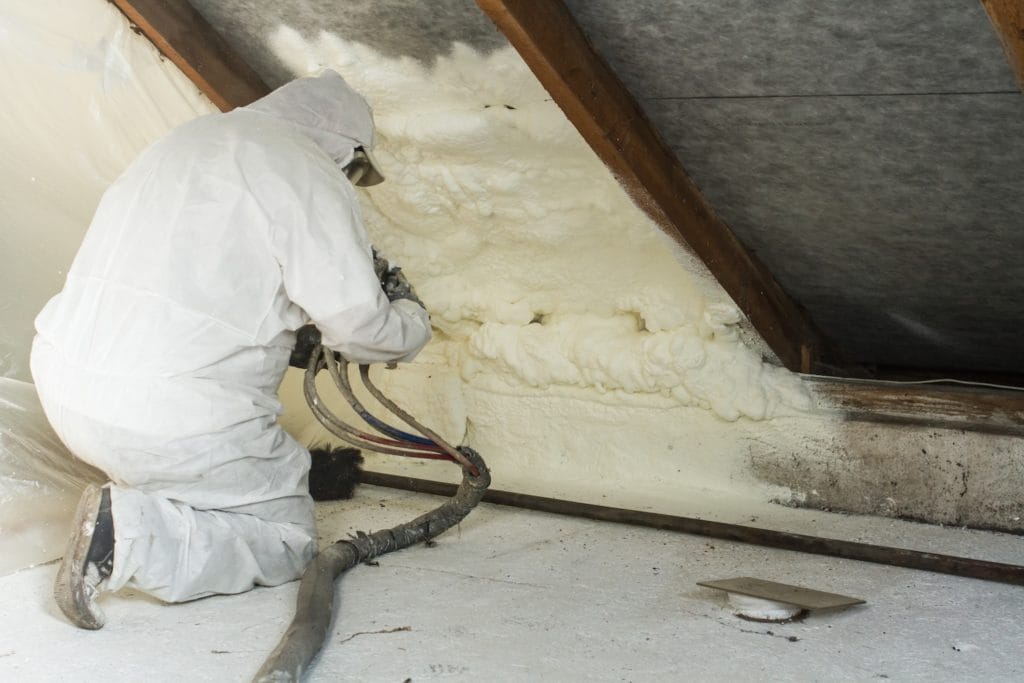Commercial Spray Foam

Insulation is a major component of any building as it contributes to the use of energy, the amplification or reduction of sound, and protection against harmful pests. For commercial use, spray foam reduces energy costs, which in turn reduces overhead costs for any business. Spray foam insulation also locks in sound, keeping it from echoing across any building, making for a more enjoyable and less distracting space.
What is spray foam insulation?
Spray foam insulation is the latest alternative to traditional, fiberglass insulation, which is not an adequate form of insulation. Spray foam is a two-component mixture that combines to create expanding foam to seal concrete slabs, wall cavities or a finished wall. The mixture expands to 100 times its original volume, creating a substantial sealing agent and developing a barrier to exterior air and sound.
Commercial Spray Foam Types
Open Cell
Closed Cell
Open Cell - Mixing lsocyanate with open cell resin to create less thick foam that is mainly used in attics and basement bond.
Closed Cell - Mixing lsocyanate with closed cell resin to create a more compressed foam used in crawlspace.
When To Apply Spray Foam?
Whether you’re building a new commercial building or looking to update what you already have, you can contact us here at Dixie Foam for a consultation of the job you need. We can fortify new buildings and strengthen buildings that are already built. Let us know what job you have in the Mississippi area and we can discuss your options for spray foam insulation.
Spray Foam in Commercial Areas
Since spray foam is a greater sealing agent, it’s able to keep out damaging pests that can lead to structural damage. When pests no longer have a place to liver or burrow, then they cannot harm the structure of a building. Pests become less of an issue and the entire building remains structurally sound.
